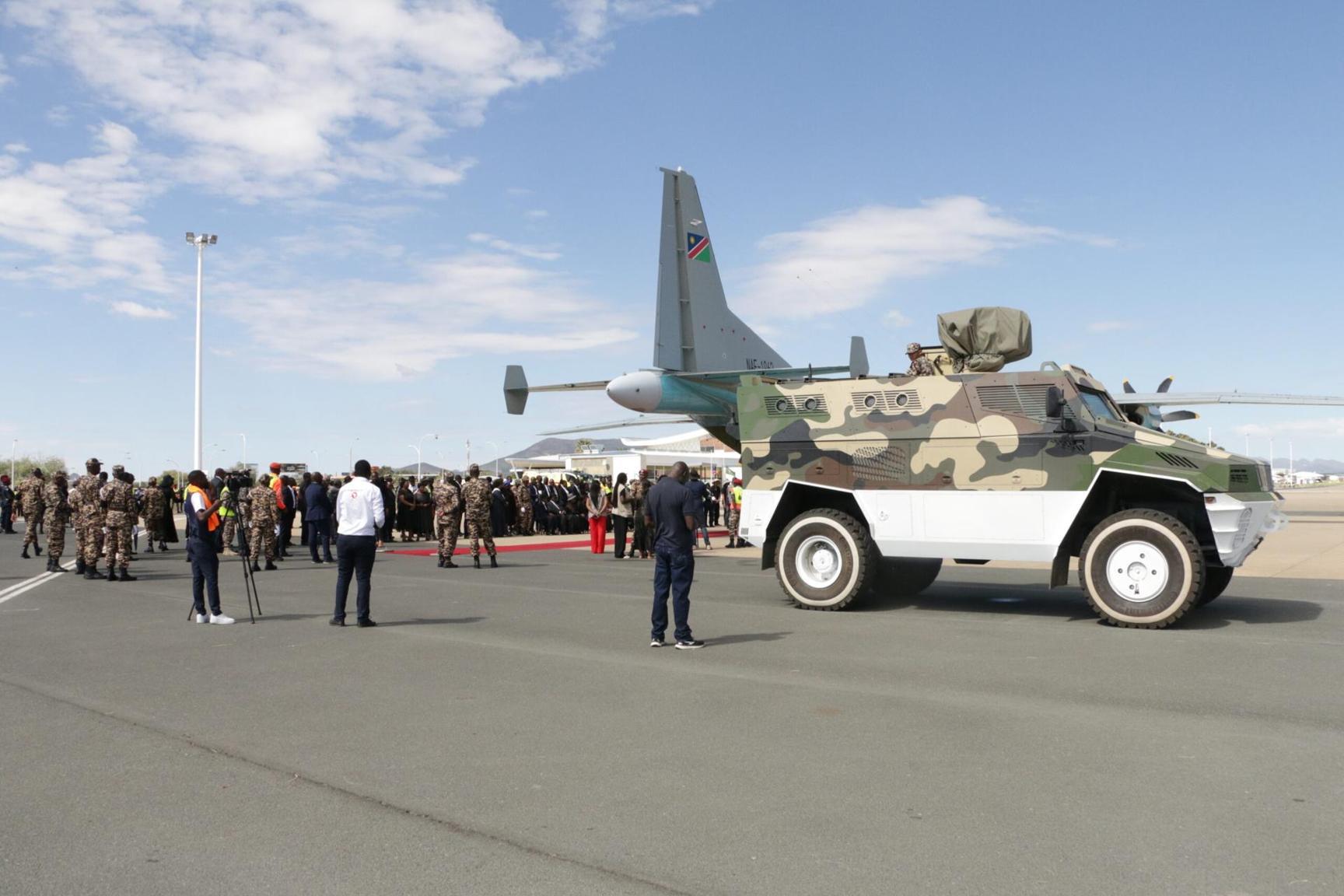Africa-Press – Namibia.
Minister of Defence and Veterans Affairs Frans Kapofi has reaffirmed the government’s commitment to ensuring a safe and secure environment for all Namibians, an effort he says requires increased funding.
For the 2024/25 financial year, he is requesting Parliament’s approval of a N$7.49 billion budget. Of this, N$600 million is allocated for development programmes, while N$6.89 billion will fund operational and administrative activities.
Motivating the budget in Parliament last week, Kapofi stressed the importance of maintaining a strong defence force, amid growing global instability.
“Peace and security at home can no longer be taken for granted in a world where global and regional powers are re-arming, terrorist attacks are increasing, cyber threats are escalating, and the race for resources continues to fuel conflict,” he warned.
The minister pointed out that international and regional bodies such as the United Nations, African Union and SADC are increasingly failing to resolve conflicts, citing ongoing unrest in Mozambique’s Cabo Delgado Province and the eastern DRC.
“Strategic partnerships are essential if Namibia is to survive in this chaotic global environment,” he stated.
From the total budget, Kapofi pointed out that N$701.8 million is earmarked for training and capacity-building. The Ministry of Defence and Veterans Affairs (MODVA) must continue to recruit and retain skilled personnel to manage workforce risk, and sustain military effectiveness.
“The youth have shown overwhelming interest in joining the Namibian Defence Force (NDF). We aim to cultivate a diverse and inclusive force that reflects the Namibian community and possesses the critical skills needed to fulfil our mission now and in the future,” he
continued.
Kapofi revealed that a total of N$3.32 billion has been allocated to land operations to cater for Namibia’s land, air and sea borders, which he described as “agonisingly porous,” and stressed that the country lacks the resources to establish a widespread military presence.
“With growing investments in mining, energy and the blue economy, the need to monitor and secure these areas has become more urgent.
Technology will be key in offsetting our limitations, and this year we plan to enhance coordination and cooperation with stakeholders to address these challenges.”
The politician stressed that the NDF is ultimately responsible for ensuring that Namibia’s airspace remains secure. Therefore, N$431.9 million is budgeted for airspace protection, a core responsibility of the NDF, while civil aviation falls under other stakeholders.
The military health sector will receive N$105.1 million. While the MODVA has invested in training medical practitioners, many have since left for better opportunities, leading to manpower shortages.
“In this regard, the ministry will continue to put more efforts into the provision of health services, medical supplies and equipment. We will also recruit health professionals and improve the conditions that had caused the high turnover,” Kapofi observed.
He then noted the loss of the Peter Mweshihange Military Health Centre to a devastating fire, saying the ministry is planning a new fully-fledged military referral hospital.
For More News And Analysis About Namibia Follow Africa-Press






